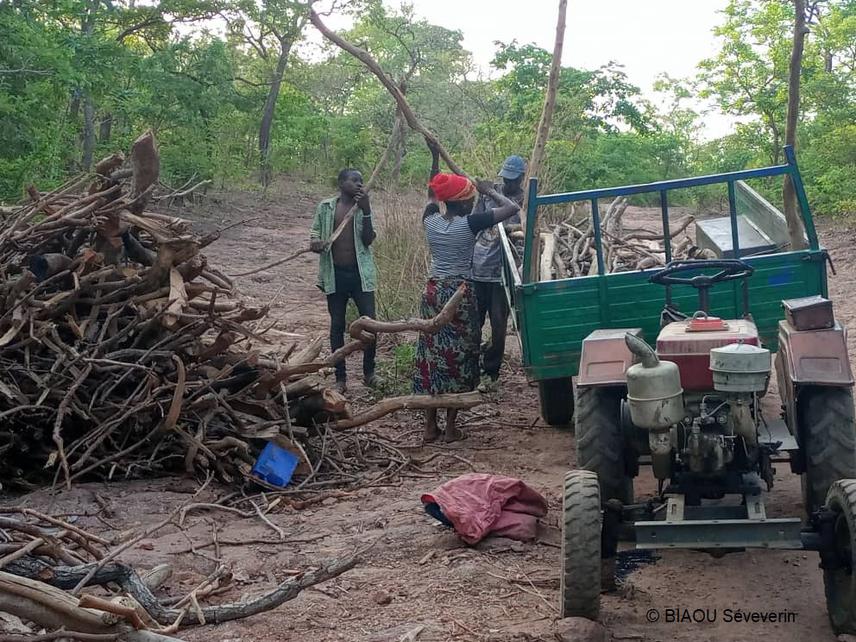Séverin Biaou
Trois-Rivières Forest in Benin is a largest forest reserves in Benin known for its remarkable biodiversity and vital ecological services it provides to local communities (Neuenschwander et al., 2011). The forest acts as a critical corridor for species dispersal, connecting it to the W National Park, a transboundary biosphere reserve. However, human activities such as the conversion of forests into agricultural lands, particularly for cash crops like soybeans and cotton, alongside unsustainable farming practices and selective logging of the commercially important timber trees have led to a severe fragmentation of this ecosystem (Sinsin et Kapmann, 2010). Indeed, the neighboring communes of the region represent the cotton basin of Benin. Despite the pressing challenges, the conservation planning for Trois-Rivières Forest is hindered by insufficient fundamental information.

Local community firewood collection in Trois-Rivières Forest Reserve, Benin © Biaou Séverin.
Therefore, this project aims to investigate the factors driving deforestation in the Trois-Rivières Forest and assess their impact on plant biodiversity. Specifically, to: (i) analyse the historical land use and land cover changes (LULCC), investigating their consequences on plant biodiversity; (ii) conduct interviews with local communities to gather their perspectives on the drivers of forest loss and their motivations for LULCC; and (iii) raise awareness among local communities regarding forest conservation and restoration activities, based on the project's findings.
To achieve these goals, we will evaluate the rate of forest degradation and species diversity, enabling us to identify best practices for community nurseries and restoration projects. We will integrate traditional knowledge to design culturally appropriate and compatible management solutions, increasing the likelihood of acceptance and success. Based on the finding, a stakeholder workshops will be organized to develop integrative strategies for conserving biodiversity habitats within Trois-Rivières Forest and to garner support for conservation efforts from all stakeholders involved. Afterwards, the results will be communicated to the local communities in each village where the data is collected, followed by awareness raising campaigns on the consequences of deforestation and importance of good conservation practices.
Header: Livestock migration in the Trois-Rivières Forest Reserve, Benin © Biaou Séverin.